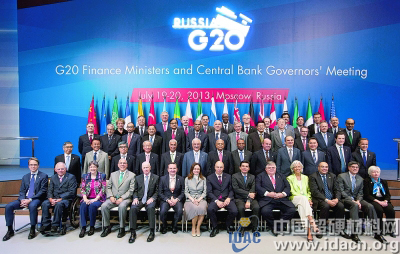
The joint communiqué issued after the meeting also adopted a relatively pessimistic tone. According to the report, the current global economic growth is still weak, and the economic recovery process is characterized by fragility and imbalance. In many countries, the unemployment rate is too high and the European economy continues to decline. Although emerging economies have shown sustained and steady growth, the growth rate has slowed significantly. G 20 finance ministers and central bank governors believe that the current promotion of growth and job creation is the top priority for all countries, and countries will take decisive action to push the economy back to strong growth.
According to foreign reports, participants supported the proposal to negotiate and promote employment and growth, and promote the rebalancing of the world economy. The G 20 summit held in September this year may issue a joint declaration.
Previously, there were differences within the G 20 on issues that were more urgent in strengthening fiscal consolidation and promoting growth and employment. However, from this meeting, Germany, which has always emphasized fiscal consolidation, has made certain compromises. French Finance Minister Moskovsky said that although the differences still exist, the distance between the two sides has narrowed. Moskovic said: "In the medium term, fiscal consolidation is necessary, but in the short term, the G 20 should focus on growth."
According to the World Economic Outlook Report updated by IM F, the global economic growth rate is 3.1% and 3.8% respectively this year and next, which is 0.2 percentage points lower than the forecast in the April report. The rate will be lowered to 1.7% and 2.7% respectively; the euro zone economy will shrink by 0.6% this year and 0.9% next year; Japan's economic growth rate will reach 2% this year and will fall to 1.2% next year. China's growth rate this year and next is respectively 7.8% and 7.7%.
The issue of exit from quantitative easing monetary policy is another focus of this meeting. G 20-wheel-country Russian Finance Minister Silouov stressed at the press conference after the meeting that the parties concerned discussed this issue, neither developed nor developing countries advocated the current termination of loose currency. policy.
In the communiqué issued after the conclusion of this meeting, G 20 stressed that the monetary policy adopted by countries should be conducive to stabilizing domestic prices and supporting economic recovery. The loose monetary policy implemented in the past few years has brought long-term risks to the economy, so the future Countries should carefully adjust monetary policy and communicate clear messages to other countries. G 20 reiterated that excessive capital flows and disorderly exchange rate fluctuations will have a negative impact on financial stability. Sound macroeconomic policies and a prudent financial regulatory system will help address potential financial risks. However, the communique did not explicitly require the Fed to give a clear statement on the exit of quantitative easing.
Siluyanov pointed out that the Fed’s release of signals about possible withdrawal from quantitative easing monetary policy led to panic of funds and a large outflow of emerging economies. “So, regardless of whether quantitative easing continues, we all hope that the Fed will improve the predictability of policies, and Other countries strengthen communication." Lou Jiwei also said that everyone is worried about the Fed's withdrawal from the quantitative easing policy. In particular, if the Fed does not communicate well with the market and other institutions, it will have a negative impact on the market. "We hope the US will explain this issue." "In the process of withdrawing from the quantitative easing policy, the US should try to consider the concerns of other countries."
According to reports, during the meeting, the BRICS finance ministers and central bank governors coordinated their positions on the current global economic situation and the issues of the G 20 finance ministers and central bank governors meeting, and the BRICS financial cooperation. In response to the recent withdrawal of quantitative easing monetary policy plans by some developed countries, which led to the outflow of large amounts of capital from emerging market countries, the depreciation of local currency, financial market volatility, and the negative impact on emerging market countries and global economic recovery, participants urged Developed countries improve the transparency and predictability of policies, enhance communication and coordination with other countries, and avoid exiting quantitative easing monetary policies, triggering international financial market turmoil and affecting the global economic recovery process.
Here you can find the related products in Isolation And Recording, we are professional manufacturer of Isolation And Recording,Paperless Chart Recorder,Brainchild Paperless Recorder,Digital Signal Isolator. We focused on international export product development, production and sales. We have improved quality control processes of Isolation And Recording to ensure each export qualified product.
If you want to know more about the products in Isolation And Recording, please click the product details to view parameters, models, pictures, prices and other information about Isolation And Recording,Paperless Chart Recorder,Brainchild Paperless Recorder,Digital Signal Isolator.
Whatever you are a group or individual, we will do our best to provide you with accurate and comprehensive message about Isolation And Recording!
Isolation And Recording,Paperless Chart Recorder,Brainchild Paperless Recorder,Digital Signal Isolator
Xi'an Gavin Electronic Technology Co., Ltd , https://www.gaimcmeas.com